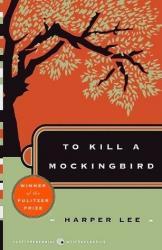
To Kill a Mockingbird, by Harper Lee, is a fantastic novel that examines the racism present in the South during the Great Depression. The book includes several remarkable instances of justice being served to the widespread prejudice present, which captures the reader. All of the character are well developed and serve well in their roles, especially the main protagonist. The entire setting is also intriguing and forms a solid foundation for the plot. Overall, I would recommend this book to anyone as it is a fascinating tale about Southern life.
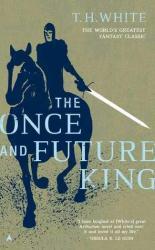
The Once and Future King, by T. H. White, is a great fantasy classic that is a retelling of the saga of King Arthur. The novel is stuffed with a mix of wonderful emotions that blend together to make a very unique fantasy story. The characters are all developed very well, especially the protagonist, and the plot fits them very well. The book has some very sorrowful scenes, but does a fantastic job of spacing them out with its humor. The only downside to the book is that it is for high-level readers.
If the story was put into a bit simpler language, it would relate to more people and reduce the amount of strain placed on the readers' mind while trying to interpret it. Overall, The Once and Future King is a great fantasy novel, but its use of complicated language takes away from the world it creates.
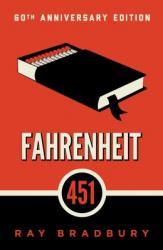
Guy Montag, a fireman who lives in the future where all books are banned, is required to burn them all. Guy then meets a strange girl who explains how books aren't so bad. He begins to spend more time with her and as more fire calls end up worse and worse, his point of view on books is eventually changed. Guy becomes a rebel to the fire company, as he tries to stand up to what is right. He later meets with an ex-professor who helps him generate a plan. Will he succeed? Read this book to find out. I would recommend this to anyone who wants to read about an alternate point of view on the future and readers who like technology as well as robots.
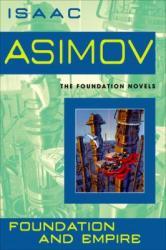
One of my qualms with the start of Isaac Asimov’s Foundation series was how different the stories were from each other. Each was set in the same universe but failed to have much of a cohesive narrative that tied them all together. While Foundation covered five different short stories, its sequel, Foundation and Empire managed to whittle this method of storytelling down to twonovellas. The result was a clear improvement in clarity and focus as each half of this book only covered a single plot each.
In Foundation and Empire, I finally was able to read a story that stuck with me in this series. Up until this point, I probably couldn’t tell you the premise of any of the short stories in Foundation, let alone the plot of the first half of this book. However, once this book transitioned over from topics that were more in line with science into ones that had a more fictional bend, I found the narrative to be much more enjoyable. It’s almost a shame that the whole book wasn’t an exploration of the universe presented in the second half.
Even if it took a book and a half for me to warm up to this series, I could honestly say that “The Mule” piqued my interest and will likely contribute to my continued reading of the Foundation series. This was probably because this particular half of the book introduced a clear antagonist to the story. It’s not that other stories in the series up until now didn’t have antagonists, it’s more that they weren’t an individual villain up until now. Now things are getting interesting!
A natural evolution of Foundation and an improvement on its predecessor, I give Foundation and Empire 3.5 stars out of 5.
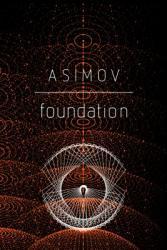
For years, people have asked whether or not I have read the penultimate science fiction series that is Isaac Asimov’s Foundation. Up until now, I could not say that I had. While I knew the series by its name, I hadn’t ever heard any comparisons or even knew what these books were about. This probably should have been my first indication of what to expect. I wasn’t expecting anything other than its notable status as a pillar of classic sci-fi. If anything, the fact each “section” of Foundation is its own short story says volumes about the origin of the genre.
Set within the same universe, Foundation follows five different groups across the timespan of a couple hundred years. Asimov explored a few different concepts and spent most of this book in world-building mode. I’ll applaud his ability to remain fairly consistent across these different stories, but the fact that there isn’t much that ties them together is the main issue I have with this book. Because they’re mostly five separate short stories, there’s not too much “action and consequence” between the different sections. This is what I would expect from a book with a standard three-act structure plot.
Additionally, I think the science fiction stories I tend to enjoy lean more on the “space opera” side than where Foundation lies. The fact that Foundation dives so deep into heady—and often controversial—topics like religion, politics, and economics is probably what lost my interest. Sure, there are some neat applications of technology that drives these topics. However, since it felt more like an academic lecture instead of an entertaining read, I glossed over a lot of the details. Maybe the other books in the series remedy this but for Foundation I just kind of felt “meh” about it.
An OK start to a highly-lauded science fiction series, I give Foundation 3.0 stars out of 5.
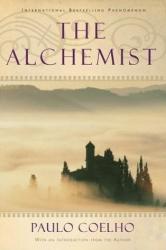
The Alchemist is the story of Santiago, a shepherd boy, who goes on a journey to find treasure he saw in a dream. It is a story of philosophy and self-discovery, and its open-ended style leaves a lot of room for interpretation. That is the beauty of this book; every reader will get something different out of it. I found The Alchemist to be very inspirational and calming, as well as immensely interesting. This quick read is great food for the soul.
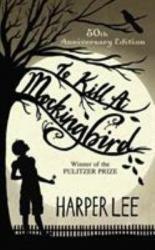
To Kill a Mockingbird is a well thought out, very deep and well executed book. Although it contains some very strong language, I'd say this is a must read for any teenager. Set during the time of the depression, this book deals with many political issues such as racism while also managing to teach very important lessons along the way. The complicated sentence structure in the book, as well as the vocabulary serve to make it a very fun and chalenging read. In my opinion this book is truly one of the best written in history.
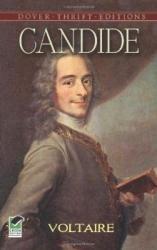
Candide by Voltaire is an interesting book about a man who believes everything that happens will be for the good of man (perverted optimism) even though he is faced with incredible suffering. I read Candide with my European Literature class and I found it a very good book to demonstrate perverted optimism and satire. Voltaire uses satire as an effective device to show the horrors of the world at his time. While Candide is mostly based in truth, it has many fictional ideas such as a country called Westphalia and the mythical El Dorado. Overall, I really enjoyed this book even though it is very weird, it still had an interesting use of language and story line.
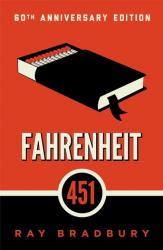
With this dystopian society reversing positions in society, firefighters burn books and light houses on fire. Montag, a veteran firefighter, soon meets a girl who changes his mind about life, books, and his job. Soon, this mystery girl disappears and Montag soon sets out on a risky adventure to solve the mystery of his lost friend. With him betraying society, reading intriguing literature, and meeting new friends, the society is out to find Montag. Will he escape into the unknown world or will he be caught with his fate unknown? This book is an adventure worth reading!
Reviewer Grade: 9th
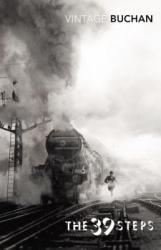
It’s weird to think that stories like The 39 Steps have only been around for 100 years. Perhaps their ubiquity in modern action thrillers has made me numb to their “man on the run” plotline, but I didn’t find this book to be as interesting as I had expected. Sure, it’s short, but how many of its twists and turns were merely repeating the same way of escaping the main character’s pursuers time and again? And perhaps that’s the main issue I have with this book: the main character seemed to be too skilled at eluding capture for it to be believable.
I know the “wrong man” trope that thrusts an ordinary person into these kinds of circumstances isn’t as realistic as it could be, but when Richard Hannay just happens to know exactly what to do at each instance, I wonder how “ordinary” he really is. Don’t get me wrong, the chase is exciting, it’s just oddly convenient for the protagonist. Of course, maybe I was already ruined by having seen Alfred Hitchcock’s version of this story in The 39 Steps (1935), which added in elements of romance and changed some key plot points.
In the end, The 39 Steps still stands as one of the originators of its genre. Even if the style has morphed and evolved over time, it’s essential to recognize where it came from and what its early influences were. If you’re interested in the history associated with the genre, then this book for you. Heck, if you have a few hours to kill in an airport or waiting room, this book might be the ticket. Just don’t expect much out of it other than some slightly-entertaining distraction.
A basic, if perhaps unbelievable story, in the early action-thriller genre, I give The 39 Steps 3.0 stars out of 5.
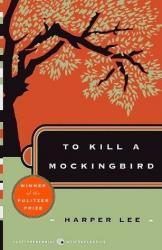
This book is an examination of racial tensions and living as someone who defies the social norms to do greater good. It follows a small family that consists of a father and his two children. The father, a lawyer, becomes the first white man in his time and area to defend a black man in court, alienating himself and his family from the rest of their society (because he did what was practically unspeakable in the town's eyes). A fascinating series of events ensue, in which the children grow up learning what it feels like to feel prejudice and can thus empathize with the struggle that colored people around them face. The father must sacrifice his social standing and endure hatred and threats because he chooses to defend the truth, rather than the race. All in all, I would recommend this book not only for its complex and very interesting plot, but also for its analysis of racism and human nature in regards to the greater good and a sense of humanity. Themes of empathy and sacrifice then escalate the plot to its famous and unexpected finale. It is worth the read even only for the father's speech in court towards the end of the book, where he makes his case in favor of a colored man. I would give this book five out of five stars.
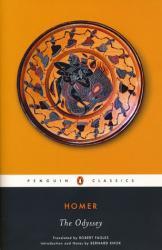
This epic poem is one of the most fascinating pieces of literature I have ever read. Following the story of Odysseus, it is an epic journey where gods and mythical monsters try and impede his journey home. There is mythology intertwined with adventurous storytelling, and the style of writing, while obviously more difficult than modern writing, is not too challenging that it makes the poem hard to read. I would recommend reading it for both its historical significance and because of how interesting the story itself is. While it will take some time to get through, the story, I believe, is worth the time. The monsters that Odysseus encounters barter with him and tell him stories that deepen the plot; his interactions and relationships reveal mysteries and provide new motivations or points of interest.
Everything is complexly interconnected and it does take a bit of historical context or background knowledge to understand all parts of the story, so it is an undertaking. However, the fantastic and timeless story is entirely unique. I would give it five out of five stars.
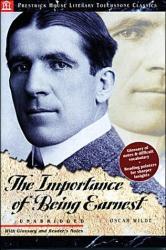
Over the years, I have been assigned to read a multitude of books and plays for English classes - some of those writing pieces I have never committed to and read thoroughly. This year in AP Literature, The Importance of Being Earnest was assigned and was not amongst those writing pieces. In many of the English classes I have enrolled in, there are numerous books or plays - especially Shakespeare - that I have read which might be interesting but the diction is archaic. The words and phrases are not used modernly and therefore, what is written is difficult to understand in the absence of translations or SparkNotes. Despite being published in 1895, The Importance of Being Earnest was an easy read because the play is easily humourous.
The play pursues wealthy and bored protagonists, Jack Worthing and Algernon Moncrieff, as they court two women, Gwendolen Fairfax and Cecily Cardew, pretending to be men named Ernest. Their “Bunburying” depicts the theme that idle hands indulge in mischief. Jack, who resides in the country, introduces a devious and unruly brother named Ernest who resides in the city so that he can be reckless in one place while also being arguably mature in another. Algernon pretends to have to check in on a pale and sickly fellow named Bunbury when he is introduced to responsibilities or events he does not desire to participate in. Eventually, upon hearing of Cecily Cardew, Jack’s ward, from Jack, he pretends to be Ernest as well. The two characters utilize their separate versions of "Bunburying" for their own pleasure rather than for being productive, depicting their own values of dishonesty and deceit.
The characters are self-concerned which is unfortunate because during the 1890s, the time in which this play is set, the Victorian Era endured multiple widespread conflicts including overpopulation, poor sanitary conditions, child labor, and religious insecurity - none of which are mentioned by any of the four characters.
Ultimately, the theme of the play may be applied to the modern era which permits The Importance of Being Earnest to be more relevant when you compare the Victorian upper class to, for example, the Kardashians or other celebrities.
The humorous aspect of the play was Oscar Wilde’s use of epigrams, or clever and paradoxical expressions. Predominantly delivered by Algernon, my favorite of the epigrams was “The amount of women who flirt with their own husbands is scandalous. It is simply washing one’s clean linen in public.”
Additionally, this play is a short read with only about 75 pages.
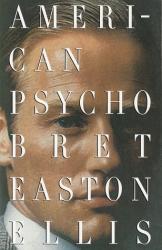
American Psycho is a bitter, biting satire about consumerism, and the dark side of the American Dream. The story follows Patrick Bateman who works on Wall Street. He is charming, handsome, and rich. He is also a murderer and a psychopath. We follow him as he falls further and further down the rabbit hole as he becomes more consumed with wealth and money. The satire is biting, the humor dark, and Patrick Bateman feels like a real character that is both relatable and hated by the reader at the same time. This book is amazing. I would recommend this novel to anyone who is looking for a great book to read.
Be prepared for some shocking scenes, though!
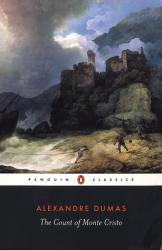
This book is amazing. The story follows the tale of Edmond Dantes and his quest for revenge against the three men responsible for his incarceration. It is a very simplistic concept, but upon reading the novel one will find a book filled with characters that live and breathe, action that is relentless, and many subplots threaded throughout the novel in intricate ways. The book, while extremely long, is entertaining all the way through. The ending is satisfying and ends the book well. I would recommend this book for anyone who is a fan on action novels, or revenge novels.
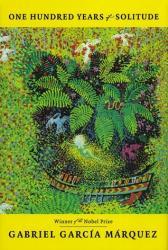
One Hundred Years of Solitude tells the tale of the rise and fall of the fictional Colombian town Macondo, and the stories of the Buendia family that inhabits the town. The novel is stellar. The characters feel alive and breathing -- they all have different motivations, desires, and weaknesses.
The reader truly begins to feel a connection with these characters as the novel progresses, and that's what makes the novel so good -- if you didn't know the town was fake, you would think it was a real place. The novel pioneered the genre of magical realism, which is a novel with a realistic view of the world that includes magical and surreal elements. The inclusion of magical realism elements in the story is what makes the book truly unique and fun to read. However, it is a very dense book, and can become very confusing very easily. If you can get past the often confusing nature of the novel, you will find a very rich and rewarding reading experience that I would recommend for anyone to read.
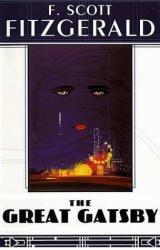
The Great Gatsby is the story that is narrated by Nick Carraway, an old neighbor of Gatsby. Taking place in 1922, Nick tells his story of when he has just moved from the Midwest to West Egg in Long Island to become successful and gain fortune as a bond salesman.
The Great Gatsby by F. Scott Fitzgerald is a exemplary book taking place during the Jazz Age. The novel was well written. It was simple, intriguing, clever and witty. Contrary to the deep story/plot line, the writing made it interesting and neither too boring nor extremely emotional. In addition to this, the overall fate upon the Gatsby, Carraway, and Daisy has a strong connection to the reader that allows them to feel the concept of tragedy.
Personally, this is one of the best books/novels. It is a great work of fiction that perfectly crafts the story and the Jazz Age of America.
Reviewer Grade: 10
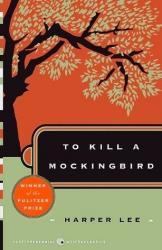
To Kill A Mockingbird is a book set in the early 1930s that describes the story of a family in the quiet town of Maycomb in Alabama. Currently suffering in the Great Depression, Scout Finch and her brother, Jem, live with Atticus, their widowed father. During the summer, Finch, Jem and their neighbor Dill explore their street to find an eerie house owned by a man named Mr. Nathan Radley. They learn that he has been living their for years with a brother, Arthur, and has never ventured outside.
The book took a simple setting and turned it into an exciting and intriguing plot line. It was unpredictable for the courses of events that took place, where it was never boring and was continuously captivating.
Personally, I enjoyed most about the creative plot line and course of events that happened in the book. It is an extremely unique book that is in an uncommon time setting, which creates a more enjoyable experience. This is one of the best books I have read.
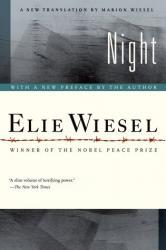
Night, by Elie Wiesel, tells of the story of the main protagonist Eliezer and the many tragedies he faced in German concentration camps during World War II. The protagonist narrates the entire book in a first-person and unbiased manner, which exposes the emotional truth of the Holocaust and provides an autobiography of the real author’s experience during the war. Eliezer, the main protagonist and counter part to the real Elie Wiesel, is forced to approach his ever-changing relationship with friends and family, many conflicts and struggles, and a plethora of situations that threaten his existence throughout the book. His reactions to these various obstacles exhibit the Holocaust survivor’s unique traits that set him apart from other Protagonists. Like Eliezer, every character in the book is developed fully with vivid traits that the real Elie remembers about them. The autobiography is fascinating and tells a compelling story while informing the reader about what really happened during the Holocaust, and I would reccomend it to anyone.
Grade: 9
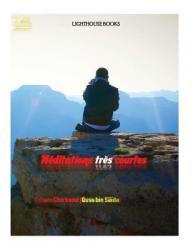
One Hundred Years of Solitude tells the tale of the rise and fall of the fictional Colombian town Macondo, and the stories of the Buendia family that inhabits the town. The novel is stellar. The characters feel alive and breathing -- they all have different motivations, desires, and weaknesses. The reader truly begins to feel a connection with these characters as the novel progresses, and that's what makes the novel so good -- if you didn't know the town was fake, you would think it was a real place. The novel pioneered the genre of magical realism, which is a novel with a realistic view of the world that includes magical and surreal elements. The inclusion of magical realism elements in the story is what makes the book truly unique and fun to read. However, it is a very dense book, and can become very confusing very easily. If you can get past the often confusing nature of the novel, you will find a very rich and rewarding reading experience that I would recommend for anyone to read.



 Ruth Holley Library will be temporarily closed for approximately one week starting Mon., Dec. 2 to complete roof repairs.
Ruth Holley Library will be temporarily closed for approximately one week starting Mon., Dec. 2 to complete roof repairs.